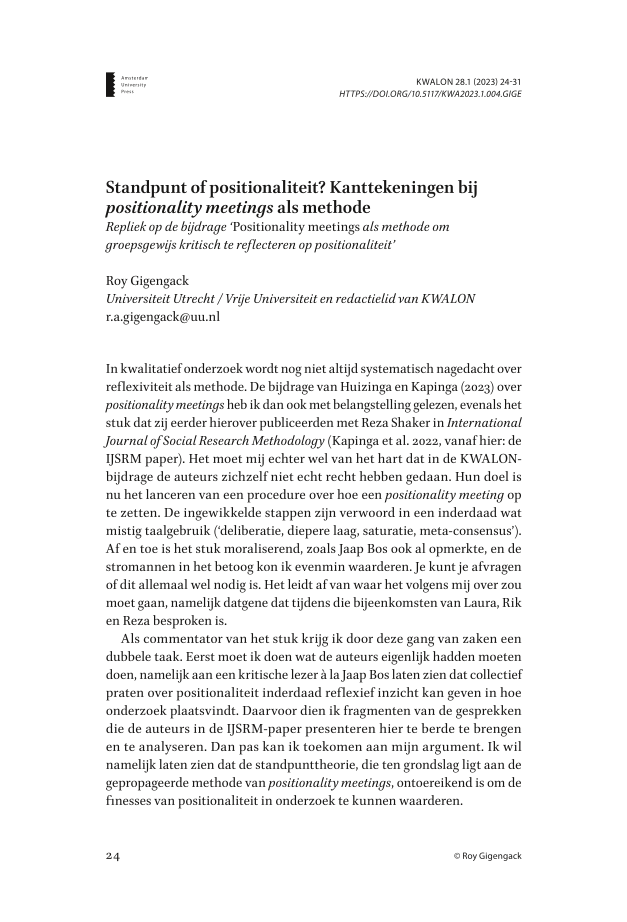2004
This is a required field
Please enter a valid email address
Approval was a Success
Invalid data
An Error Occurred
Approval was partially successful, following selected items could not be processed due to error
Amsterdam University Press Journals Online:
http://instance.metastore.ingenta.com/content/journals/10.5117/KWA2023.1.004.GIGE
10.5117/KWA2023.1.004.GIGE
SEARCH_EXPAND_ITEM
Standpunt of positionaliteit? Kanttekeningen bij positionality meetings als methode, Page 1 of 1
< Previous page
|
Next page >
/docserver/preview/fulltext/13851535/28/1/KWA2023.1.004.GIGE-1.gif



